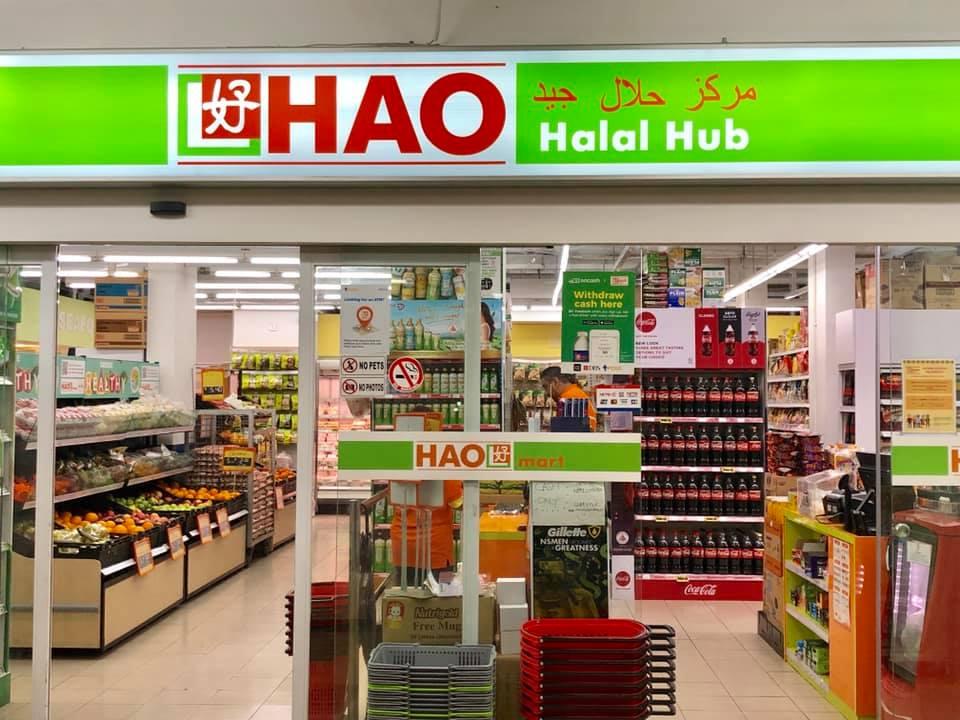
Founder of Singapore’s shuttered Global Halal Hub rises again with new convenience stores
Shortly after he was forced to shutter Singapore's only all halal-certified supermarket that he co-founded, ‘halalpreneur’ Ronnie Faizal Tan begins planning 100 new stores.
Ronnie Faizal Tan claims to have bounced back and intends to open 100 all-halal convenience stores in Singapore by 2020.
The self-styled “halalpreneur” personally lost millions of dollars when his previous venture, Global Halal Hub, was forced to close in August. Now, as a vice-president of Singaporean conglomerate Hao Corp responsible for its Hao Halal Hub retail brand, he says his dream of “bringing food to the ummah” is back on track.
“The legacy of [Global Halal Hub] will continue,” Tan told Salaam Gateway. “With the financial support and capability of Hao, we will not only grow in Singapore; after that we will be looking at global expansion. That’s a lot.”
His former business, a 10,000 square-foot halal supermarket, shuttered on August 14 due to a dispute with its landlord. It was part of the MyOutlets platform co-founded by Tan to allow halal food manufacturers and exporters to distribute their products through its own value chain channel.
MyOutlets is also involved in an online marketplace, Haladeen.com, and operates stores in Malaysia, Japan and South Korea, which will continue to run independently of Tan’s involvement with Hao Halal Hub. These could even become a supply customer, he speculated.
“I’m no longer the chairman of MyOutlets but I’m still involved as a consultant,” he said. Tan has also stepped down from his advisory role in a halal initial token offering for Haladinar, a planned blockchain-based marketplace.
“After the business failure, everything changed. I lost close to 3 million [Singapore dollars] personally after the closure. Then I was headhunted to join Hao. It’s a new lease of life,” he added.
HALAL MINIMARTS, FOOD PROCESSING PLANS
Hao Corp established the Hao Mart general retail chain in 2016, comprised mostly of minimarts. It currently has over 40 stores operating across Singapore, some of which are being converted to the Hao Halal Mart brand as it grows.
The group’s halal stores will sell nothing but halal-certified food and dry goods , except for tobacco.
Ten outlets, mostly located in residential areas, are currently open, with a total of 18 planned by the end of this year .
The next phase of the project will see a further 82 open over the next year with mall stores and supermarkets added to the mix, Jupri bin Suep, Hao’s vice-president of operations, told Salaam Gateway.
“Phase three will see us open a central kitchen for food processing, as well as overseas expansion. We are already starting to plan a facility in Bintan in Indonesia to process our foods,” he said.
With Singapore’s growing population and high number of Muslim immigrant workers, Jupri believes Hao has identified a lucrative niche of the market which he has identified as numbering around 1.2 million potential consumers.
Non-Muslims are also seeking to buy more halal food, he says, having been courted by the “benefits and unique quality of halal products and goods as part of a healthy lifestyle”.
“Based on that strategy, the market is growing and it’s going to be unique in Singapore that there is any retail chain where you can go into a shop and see 100 percent halal. It makes us very different to the rest,” he added.
He also points to a shortage of halal products, especially meat, available on the island, as well as the few, independently owned retailers currently in business serving a relatively large consumer market.
Based on this, Hao believes its only challenger lies in the Mustafa Centre, a halal shopping centre in Little India, though Jupri claims it poses little in the way of competition from its single location and unorganised format.
“You have about 41 countries providing their products to us. For cooking requirements, you are looking at suppliers that go as far as Mongolia and Japan to Indonesia and Malaysia, that make all of Singapore’s favourite products,” he said.
“You will not be able to find any other outlet that can provide so many varieties that are halal. Curry from India and Malaysia, crackers from Japan and Indonesia—you cannot find so many products in other stores that are halal, even in the three or four big supermarket players. Because of this potential we think it is worth putting our strategy into halal and bank on this business concept,” Jupri said.
Hao Corp has been able to lend its IT expertise, including six software programmers, to its retail division to provide it with advanced business analytics.
This has allowed Hao Mart to integrate data provision into its business model from the start, helping it to fast-track its understanding of the retail business in just three years, Jupri added.
Tan claims that the first four Hao Halal Hub stores, converted from existing Hao outlets , saw sales double after he launched the new division in September. On the strength of this performance, Dr Tan Kim Yong, founder and chairman of family-owned , signed off on fast-paced expansion.
Now with a new lease of life in halal retail, the Chinese Muslim convert has been reflecting on his change in fortunes, asserting that the ups and downs of 2018 did not temper his “desire to support the halal industry”.
“I think, according to my religion, this is what our creator has been planning,” said Ronnie Tan. “It’s not only a passion for me but also a calling. Nobody could have predicted that I would close one big outlet and would then open so many more stores in such a short time.”
(Reporting by Richard Whitehead; Editing by Emmy Abdul Alim emmy.alim@refinitiv.com)
Our Standards: The Thomson Reuters Trust Principles
© SalaamGateway.com 2018 All Rights Reserved
